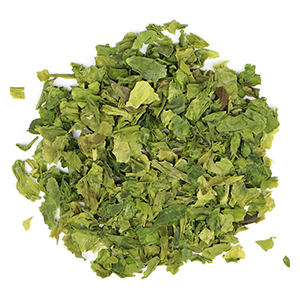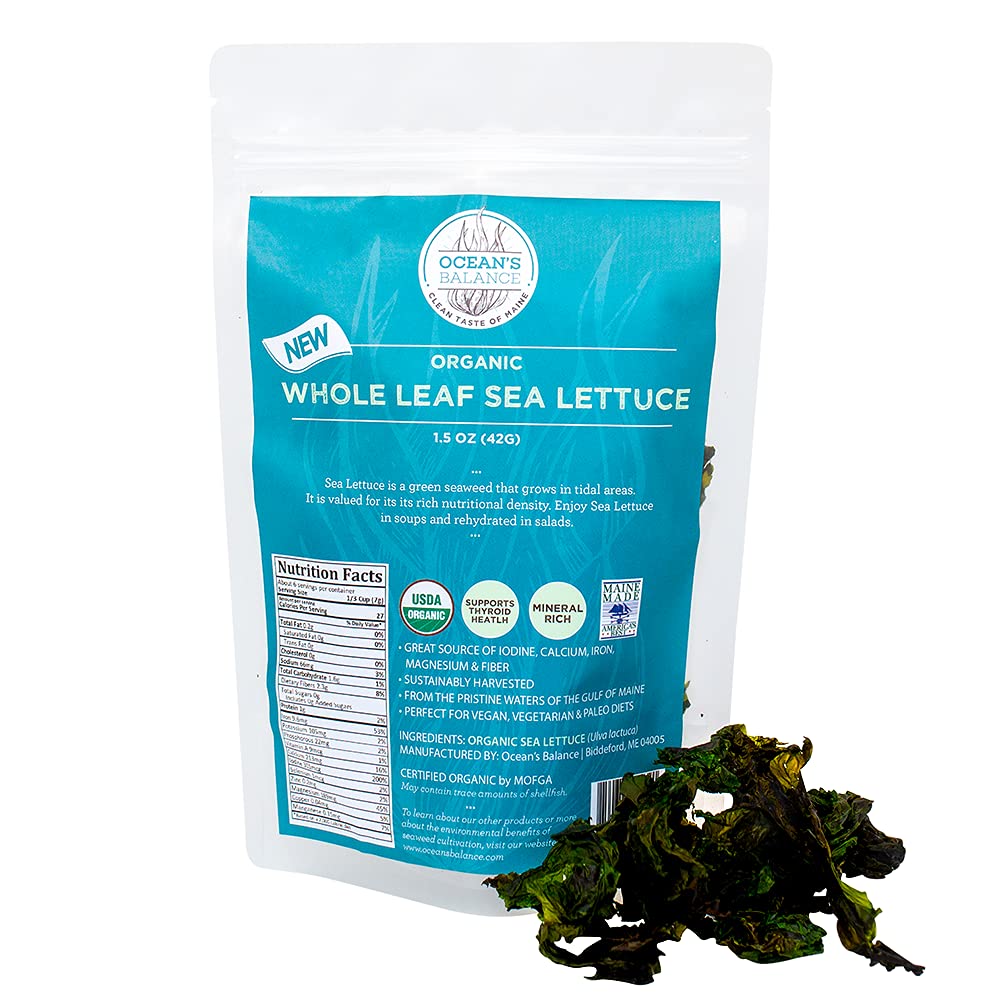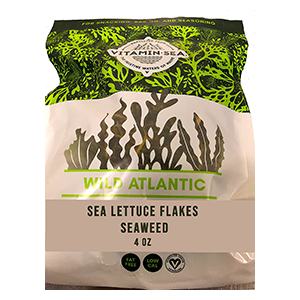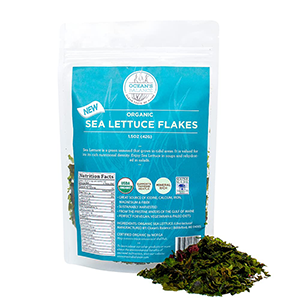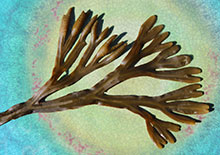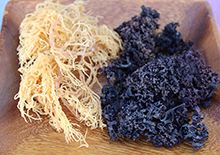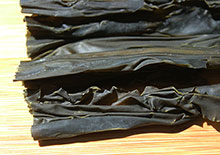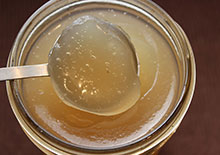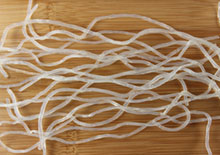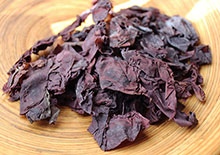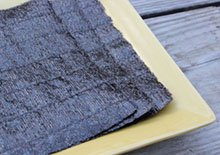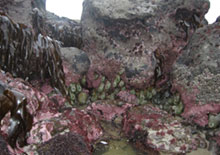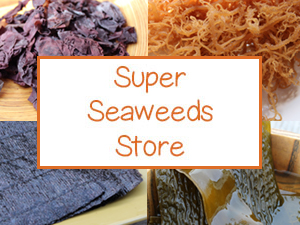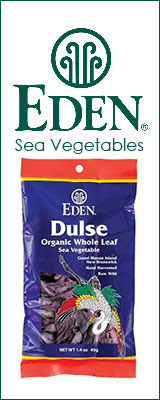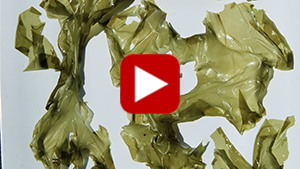5 Sea Lettuce Facts, About Nutrition and Quality
Can You Eat It? | Name "Sea Lettuce" | Nutrition Facts | Research | Purchasing Quality | Precautions | Shop
1) Can You Eat Sea Lettuce?
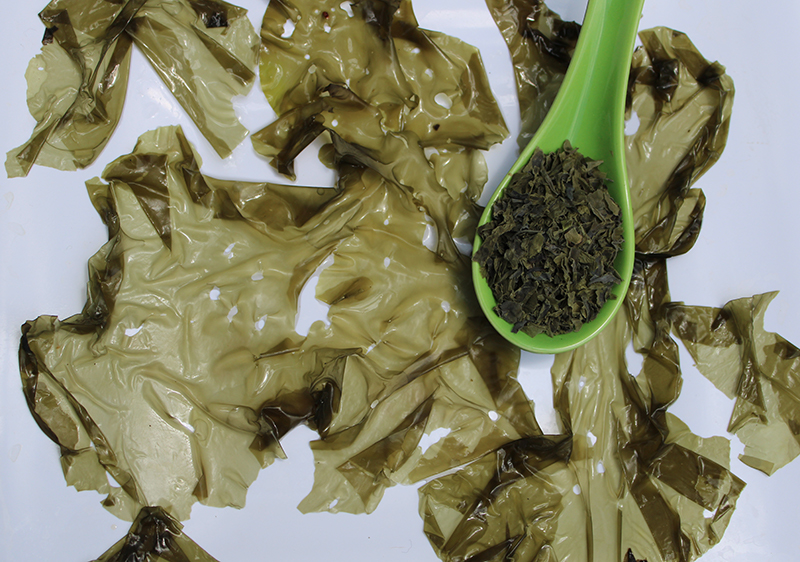
Yes, sea lettuce is an edible seaweed! A commonplace staple in many coastal regions of the globe, it is prevalent worldwide along rocky marine shorelines in both colder and tropical ocean waters.
Sea lettuce is used in its raw state, either fresh or dried, as well as added to cooked foods to nutritionally fortify the diet. It is available as a dried whole leaf seaweed or as flakes.
Table of Contents
Can You Eat It? | Name "Sea Lettuce" | Nutrition Facts | Research | Purchasing Quality | Precautions | Shop
It's often utilized fresh in East Asian cuisine when making seaweed salads or employed in gourmet cooking for its color and umami flavor.
Once relatively underappreciated, sea lettuce in modern times is now top on the list of seaweed options for several reasons. The first is largely due to its very pleasant nori-like taste qualities which can be more palatable to sea vegetable newbies. The second is due to its unique health benefits which we will soon discuss.

2) Why It's Called "Sea Lettuce"
Sea lettuce comes from the genus Ulva, of which there are many species. The common sea lettuce consumed by humans and sold as a dried selection is the species Ulva lactuca. The term "Lactuca" being Latin for "lettuce".
One of the reasons it's called "sea lettuce" is because of its very wide leaf-like lobed structure that closely resembles ruffled broadleaf lettuce varieties.
However, its large fronds are not crisp like lettuce but have a very thin texture similar to that of dulse and nori. It therefore only takes a few seconds to reconstitute dried sea lettuce in water.
Classified as a "green marine algae", it is in fact one of the greenest seaweed types. When fresh, it has a vibrant lime-green pigment and, like all sea vegetables, will darken when dried and concentrate nutrients.
In this form, it will often have a streaked dark to light color variation.
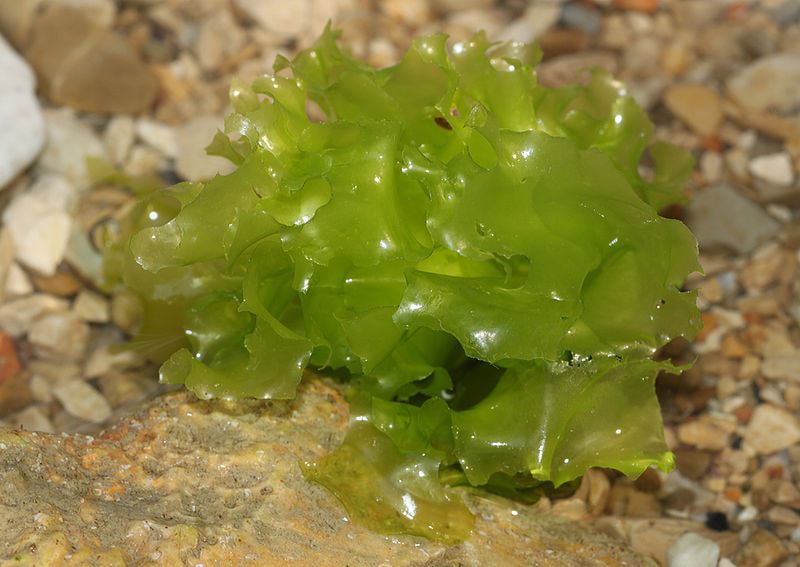
3) Sea Lettuce Nutrition Facts
Ulva lactuca is a very opportunistic species and will rapidly grow in marine environments with a condensed amount of nutrients. Thus, they are a food source for many sea creatures and marine life. Manatees, which are herbivores, frequently eat sea lettuce as part of their plant-based diet.
From a nutritional standpoint, quality sea lettuce is a source of fiber, amino acids and of course lots of mineral content. Like all seaweeds, its multi-cellular wide leaf-like blades pull in high concentrations of minerals naturally present in clean ocean waters. (We will discuss why it's best to purchase Certified Organic and/or tested seaweeds further below.)
For human consumption, sea lettuce is a good source of IODINE, great for thyroid support and protection. In some lab-tested samples (from a reputable high-quality brand), sea lettuce tested higher in CALCIUM and MAGNESIUM content out of all other types. It can therefore be a good dietary option for supporting and maintaining healthy bones and teeth.
Likewise, it's one of the top richest in IRON and also contains varying degrees of other minerals as well as beta-carotene, vitamin C and B-vitamins.
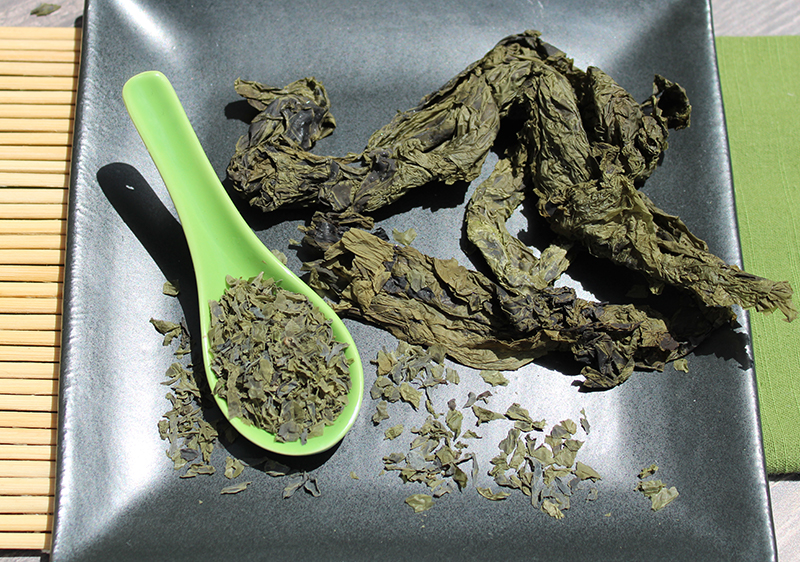
4) Research on Sea Lettuce
Ulva lactuca macroalgae species is composed of unique sulfated polysaccharides known as ULVANS. These compounds have been studied for their various anti-inflammatory, anticoagulant, antihyperlipidemic, antiviral and immune-modulating potentials.
Likewise, ulvan polysaccharide extracts from sea lettuce have shown high antimicrobial activity and are believed to offer protection against pathogens as well as provide prebiotic support to healthy gut bacteria.
As far as seaweeds go, bright green sea lettuce is one of the highest in CHLOROPHYLL content (*), a substance that can act as an antioxidant and is researched as an anti-inflammatory agent.
Another potential health-promoting benefit of this seaweed is its proposed ability to enhance GLUTATHIONE levels. Glutathione is a master antioxidant studied for its key role in the body's detoxification processes.
The intake of dietary glutathione is believed to be far more absorbable as an ingredient present in whole foods rather than as an isolated supplement. Sea lettuce is one of those food options to consider adding to the diet to obtain this valuable nutrient.
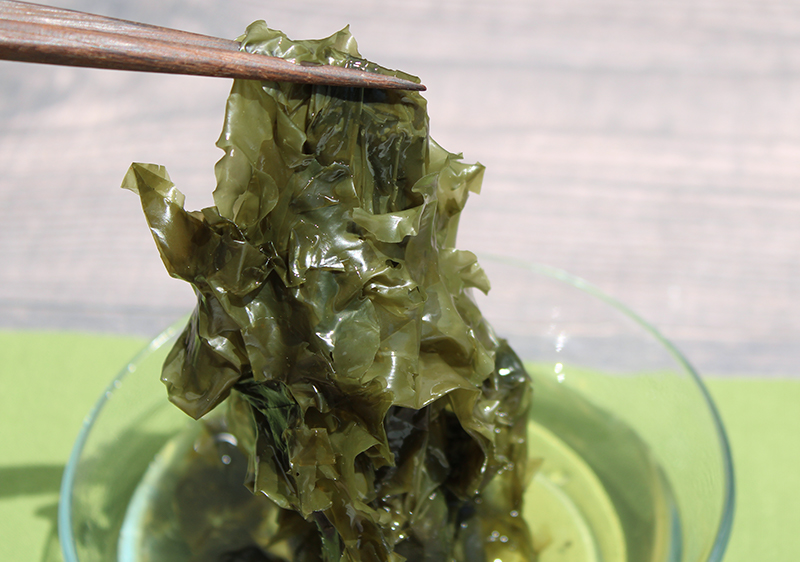
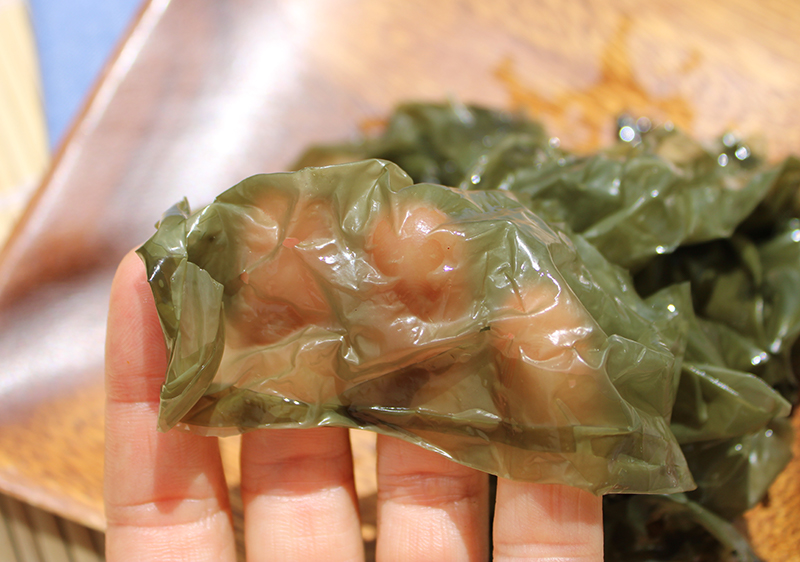
5) About Purchasing Quality Sea Lettuce
Because coastal marine locations are subject to ever-increasing levels of contamination from urban and industrial pollution, it is essential that seaweeds purchased come from clean and reputable sources.
Therefore, high-quality seaweed always undergoes lab testing to monitor potential impurities and/or the specific brand has taken measures to offer Organic certification.
Precautions:
If you have thyroid issues, it is best to seek the advice of a health professional before adding sea lettuce to the diet. Do not consume seaweed if you are allergic to fish or shellfish. Consult your physician before consuming seaweed if you are pregnant, nursing, taking prescribed medications or if you have a serious health condition.
Shop Related Products (About Affiliates & Amazon Associate Paid Links)
Affiliate Disclaimer: This section contains affiliate product links. If you make a purchase through our recommended links, we receive a small commission at no additional cost to you. Thanks for the support.

